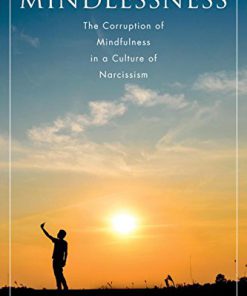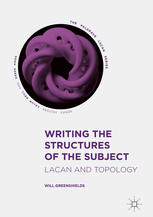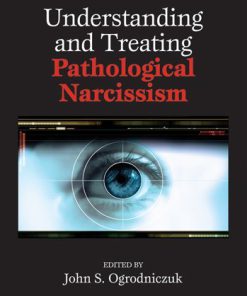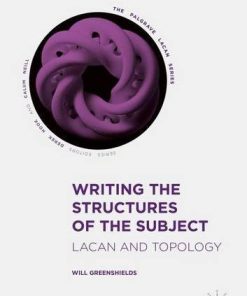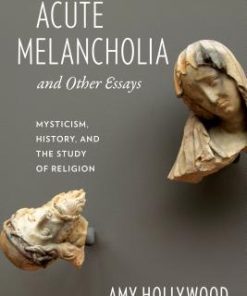Narcissism Melancholia and the Subject of Community 1st Edition by Barry Sheils, Julie Walsh ISBN 3319638297 9783319638294
$50.00 Original price was: $50.00.$25.00Current price is: $25.00.
Narcissism, Melancholia and the Subject of Community 1st Edition by Barry Sheils, Julie Walsh – Ebook PDF Instant Download/Delivery: 3319638297, 978- 3319638294
Full download Narcissism, Melancholia and the Subject of Community 1st Edition after payment
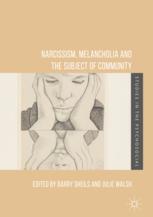
Product details:
ISBN 10: 3319638297
ISBN 13: 978-3319638294
Author: Barry Sheils, Julie Walsh
This book brings together the work of scholars and writer-practitioners of psychoanalysis to consider the legacy of two of Sigmund Freud’s most important metapsychological papers: ‘On Narcissism: An Introduction’ (1914) and ‘Mourning and Melancholia’ (1917 [1915]). These twin papers, conceived in the context of unprecedented social and political turmoil, mark a point in Freud’s metapsychological project wherein the themes of loss and of psychic violence were becoming incontrovertible facts in the story of subject formation.
Taking as their concern the difficulty of setting apart the ‘inner’ and the ‘outer’ worlds, as well as the difficulty of preserving an image of the coherently boundaried subject, the psychoanalytic frameworks of narcissism and melancholia provide the background coordinates for the volume’s contributors to analyse contemporary subjectivities in new psychosocial contexts. This collection will be of great interest to all scholars and practitioners of psychoanalysis and the psychotherapies, social and cultural theory, gender and sexuality studies, politics, and psychosocial studies.
Narcissism, Melancholia and the Subject of Community 1st Table of contents:
1. Introduction: Narcissism, Melancholia, and the Subject of Community
This introduction sets the stage for exploring the intricate relationship between narcissism, melancholia, and community. It delves into how these psychological states inform the formation of communities, often marked by not-knowing or fragmented connections. The section likely addresses the terms and conditions governing these concepts and provides a framework for understanding community beyond traditional definitions.
2. Narcissism and Melancholia from the Psychoanalytical Perspective of Object Relations
This chapter offers an in-depth psychoanalytic exploration of narcissism and melancholia, particularly through the lens of object relations theory. It examines how both conditions manifest in individuals, society, and interpersonal relationships, offering insight into their psychological foundations and implications for social behavior.
- Melancholia is explored as a form of mourning, where the subject is unable to relinquish or process lost objects (or aspects of the self).
- Narcissism, Melancholia, and Society explores how these concepts reflect societal dynamics, particularly how they influence social roles, identity, and collective behavior.
3. Narcissism Through the Digital Looking Glass
This chapter explores the intersection of narcissism with modern digital culture. It looks at how psychoanalysis views narcissism, its cultural manifestations, and how the digital world, particularly social media, reflects and amplifies narcissistic tendencies. The concept of the “digital looking glass” refers to how online platforms serve as mirrors for individuals’ self-perceptions and self-expressions. It also touches on the idea of radical narcissism, which may involve an extreme form of self-absorption that shapes one’s relationship with the digital world.
4. Something to Do with a Girl Named Marla Singer: Capitalism, Narcissism, and Therapeutic Disco
This chapter draws connections between capitalism, narcissism, and therapeutic culture, particularly referencing the character of Marla Singer from Fight Club. It examines how capitalism fosters narcissistic tendencies and how these relate to gender dynamics (masculinity, femininity, and narcissism). Popular and therapeutic culture are also discussed as reinforcing and responding to these tendencies. The chapter invites a critical look at the “therapeutic disco” of contemporary life—a space where self-improvement, therapy, and self-obsession intersect.
5. Melancholia, the Death Drive, and Into the Wild
This section investigates melancholia through the lens of psychoanalytic concepts such as the death drive and object loss. It examines the way the subject relates to loss, especially in a symbolic sense. The reference to Into the Wild suggests that the narrative of leaving civilization and seeking an “untouched” life may be seen as a form of melancholic escape, where the individual withdraws from society to mourn or reject certain symbolic structures. It questions whether melancholia is a form of social withdrawal or a mode of experiencing a loss in community.
6. The Monster in the Mirror: Theoretical and Clinical Reflections on Primary Narcissism and Me
In this chapter, narcissism is approached from both theoretical and clinical perspectives. Using the mythological figure of Medusa, the text explores the concept of primary narcissism—the first stage of self-formation when an individual encounters their own image. This chapter likely discusses the interplay between narcissism and identity formation, with clinical examples to support the theories presented.
7. Shame, Pain, and Melancholia for the Australian Constitution
This section delves into the emotional and psychological implications of Australia’s national identity and its constitution. It examines the collective shame, pain, and melancholia tied to the colonial past and ongoing issues within the country. The text touches on how these emotions are enacted in the collective memory of the nation, how the Australian Constitution functions as a symbol of political community, and the psychosocial impacts of defending or critiquing the national identity.
8. Dr. Fanon on Colonial Narcissism and Anti-Colonial Melancholia
This chapter engages with the work of Frantz Fanon, particularly his analysis of colonial narcissism and anti-colonial melancholia. It traces Fanon’s psychological examination of how colonization impacts both the colonizer and the colonized, leading to profound identity struggles. The chapter also looks at the potential for a new national community—a “New Man”—born from the ashes of colonial violence and melancholia.
9. ‘This Nothing Held in Common’: Towards a Theory of Activism Beyond the Community of One
This section explores the notion of activism that transcends individualistic or egotistical approaches. It critiques the idea of “one” community or identity that dominates activism, proposing instead a more communal and collective form of engagement. It critiques idealizing the self and points toward a model of communitas, or a shared, selfless experience in activism.
10. Neurotic and Paranoid Citizens
This chapter explores the neurotic and paranoid tendencies that can emerge within modern societies, focusing on how these psychological states manifest in citizen behavior and politics. The idea of the neurotic citizen and silencing the prosecutor suggests a critique of social and political structures that undermine the individual’s sense of agency and voice in public discourse.
11. Narcissism, Melancholia, and the Exhaustion of the ‘Journeying’ Subject
The final chapter examines the exhaustion of the subject who embarks on a journey of self-discovery or meaning-making. It critiques the idea of melancholic subjectivity in relation to community politics, particularly in the works of Judith Butler. This chapter addresses the limits of individualism and mourning in the context of community and how the melancholic subject challenges or disrupts communal bonds and political agency.
People also search for Narcissism, Melancholia and the Subject of Community 1st:
narcissism melancholia and the subject of community
can antidepressants cause narcissism
is there a link between depression and narcissism
analysis of metamorphosis of narcissus
what kind of disorder is narcissism
Tags:
Barry Sheils, Julie Walsh,Narcissism,Melancholia,Subject,Community 1st
You may also like…
Politics & Philosophy - Social Sciences
Mindlessness : the corruption of mindfulness in a culture of narcissism 1st Edition Thomas Joiner
Politics & Philosophy - Anthropology
The subject of experience 1st Edition by Galen Strawson ISBN 0198777884 978-0198777885
Psychology - Psychopathy
Psychology - Clinical Psychology
Writing the Structures of the Subject: Lacan and Topology 1st Edition Will Greenshields
Cookbooks
History - World History
Acute Melancholia and Other Essays Mysticism History and the Study of Religion Amy Hollywood
Politics & Philosophy - Government & Politics
Politics & Philosophy - Anthropology
Images of history : Kant, Benjamin, freedom, and the human subject 1st Edition Eldridge




